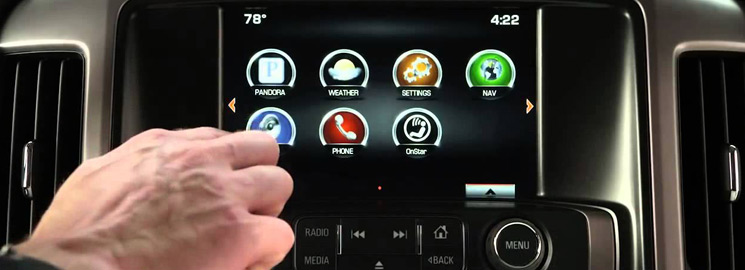Picture this: You’re driving home from work, contemplating what to make for dinner, and as you idle at a red light near your neighborhood pizzeria, an ad offering $5 off a pepperoni pizza pops up on your vehicle’s dashboard screen. Are you annoyed that your car’s trying to sell you something or pleasantly persuaded?
While it seems as if vehicles on the road are becoming connected at an alarming rate, and while the intentions of interconnected vehicles are good, such as traffic data sharing and the ability to provide insight to active road conditions miles away from a driver, this also enables vehicle manufacturers to collect large amounts of data on the driver and his or her habits behind the wheel. But just what happens with that information once it’s collected?
With millions of cars rolling off dealer lots with built-in WI-FI and GPS connectivity, auto companies are gaining access to unprecedented amounts of real-time data that allow them to track everything from where a car is located to how hard it is braking and whether or not the windshield wipers are on. The data is generated by the car’s onboard sensors and computers, and then stored by the automaker in cloud-based servers. Some new cars have as many as 100 built-in processors that generate data.
With that in mind, a recently completed report on “Data Monetization in Cars”, focusing on potential pricing and business models, indicates that if all the connected vehicles with the ability to capture certain data types were monetized, the overall opportunity would amount to ~$33 billion by 2025. Researchers in this area predict that vehicle data monetization could become a $750 billion global market by 2030. This is huge, providing tons of monetary potential given that vehicle manufacturers are still evaluating use cases and data business models.
Auto executives emphasize that data-crunching will allow them to build a better driving experience–enabling cars to predict flat tires, find a parking space or charging station, or alert city managers to dangerous intersections where there are frequent accidents. Data collection could even help shield drivers from crime.
Don Butler, Ford’s executive director for connected vehicles and services emphasized in an interview earlier this year that their potential to share data–both anonymized and personalized–with third parties represents the biggest opportunity they might have through collecting driver data. With that in mind, like most auto executives, he’s quick to point out that customers will have the choice to opt in to services that require sharing information, such as their location or driving habits.
Well, the kinds of car-data tools in play today are on a much smaller scale. General Motors Co., which pioneered the connected car with its OnStar concierge service, sent a software update to million of vehicles in December, introducing an e-commerce system that lets drivers order coffee or make restaurant reservations while driving–to the chagrin of some safety advocates. Longer term, GM may look to monetize traffic and parking data it’ll collect as its self-driving cars get on the road next year.
On that note, some companies who claim to not sell data still share data willingly using bartering and other tactics which don’t technically monetize the information but still release it from the hands of the manufacturer. BMW, for example, has a marketplace called CarData, which it operates in Europe in collaboration with IBM. The service takes telemetry readings from cars which have not opted out of collection and aligns it for use in BMW’s marketplace.
Another example of car data collection involves everyone’s favorite connected electric car manufacturer: Tesla. The automaker recently began collecting video footage from user vehicles earlier this year to improve its Autopilot functionality. It claims that the video is anonymous and that no footage can be linked back to a single vehicle’s identification number, making it searching by car impossible in Tesla’s system. All in all, it seems like a quick way to be able to access data to improve services and products. Fortunately for the company, it already has hundreds of thousands of vehicles on the road worldwide, collecting data to send back to the company’s information powerhouse in the cloud giving them a trove of big data samples.
One trend that seems to be lacking is the disregard for a more blanket approach to consumer data privacy in previously proposed legislation and industry guidance. Big data farmers have practically unfettered access to consumer data, and manufacturers seemingly have very thin limits on what constitutes unethical data sharing. A person’s means of transportation, a previously unconnected area of the human life, is now being added to the intertwined world of personally-identifiable information, further marketing that person as a product to companies.
Its been projected by many big data experts that driving and owning a car could be free in the future as your driving data will be of more value to the manufactures than just the physical vehicle itself. I personally don’t see that as a reality anytime soon but it does indeed have some value if you think about how important data collection is today as it would open out a whole new revenue stream to the companies who want to profit from a person’s means of transportation.


Leave a Reply